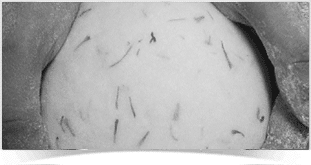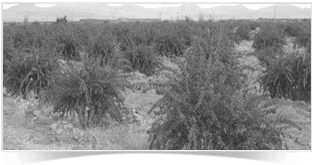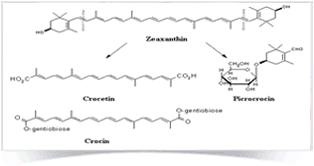


The herb saffron may hold one of the keys to preventing the loss of sight in old age – and may even help to improve vision in people suffering certain blinding eye diseases.
Research by Professor Silvia Bisti of the ARC Centre of Excellence in Vision Science (The Vision Centre) and University of L’Aquila, Italy, has established that saffron has remarkable effects on the genes which regulate the performance of the eye’s key vision cells.
Her research has shown that the high‐priced golden culinary herb made from crocus flowers not only protects the vision cells (photoreceptors) from damage, it may also acts to slow and possibly even reverse the course of blinding diseases such as age‐related macular degeneration (AMD) and retinitis pigmentosa.
A clinical trial with patients suffering AMD in Rome has found early indications that treatment with a dietary supplement of saffron may cause damaged eye cells to recover.
“Saffron is not simply an anti‐oxidant. It seems to possess a number of other properties which are protective to vision,” Prof Bisti, who is currently visiting colleagues in The Vision Centre in Australia, says.
“For example it appears to affect genes which regulate the fatty acid content of the cell membrane, and this makes the vision cells tougher and more resilient.
“Secondly we have shown in animal models that a saffron diet will protect the eye from the damaging effects of bright light – something we all suffer whenever we go out in the sun.”
Prof. Bisti says a third line of research has found that saffron is active in affecting genetic diseases of the eye, such as retinitis pigmentosa, which can cause life‐long blindness in young people. Animal research here too offers the prospect of slowing down the progression of sight loss.
 |
 |
 |
| All Rights Reserved by Iranian saffron Club® |